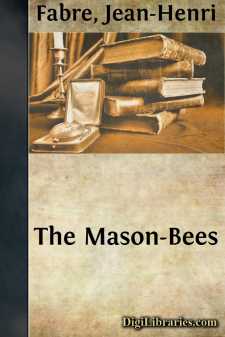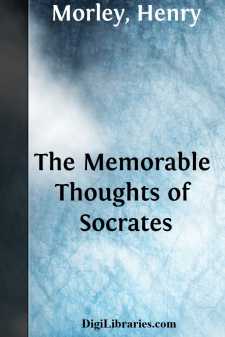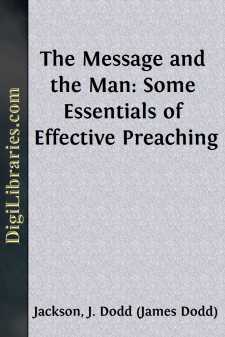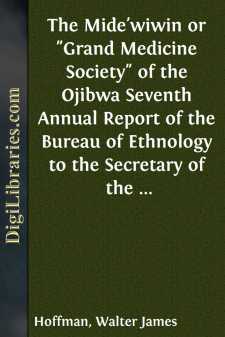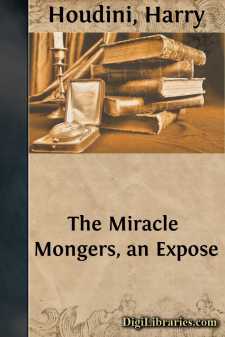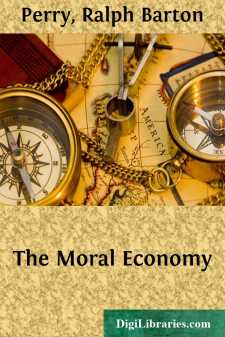Non-Classifiable
- Non-Classifiable 1768
Non-Classifiable Books
Sort by:
by:
John Spargo
THE MARX HE KNEW I The pale, yellow light of the waning day streamed through the dusty window panes of the little cigar shop, and across the bench where old Hans Fritzsche worked and hummed the melody of Der Freiheit the while. The Young Comrade who sat in the corner upon a three-legged stool seemed not to hear the humming. His eyes were fixed upon a large photograph of a man which hung in a massive...
more...
by:
Jean-Henri Fabre
CHAPTER 1. THE MASON-BEES. Reaumur (Rene Antoine Ferchault de Reaumur (1683-1757), inventor of the Reaumur thermometer and author of "Memoires pour servir a l'histoire naturelle des insectes."—Translator's Note.) devoted one of his papers to the story of the Chalicodoma of the Walls, whom he calls the Mason-bee. I propose to go on with the story, to complete it and especially to...
more...
by:
Thomas Bull
Chapter I. The line of demarcation made between infancy and childhood, both by ancient and modern writers, has always been arbitrary. I would draw the line between the two, at a period of time which appears to me to be the most natural, the most simple, and least likely to lead the reader into the danger of misapplying any part of the practical directions of this, or any future chapter of the work. We...
more...
by:
Samuel J. Record
PART ITHE MECHANICAL PROPERTIES OF WOOD INTRODUCTION The mechanical properties of wood are its fitness and ability to resist applied or external forces. By external force is meant any force outside of a given piece of material which tends to deform it in any manner. It is largely such properties that determine the use of wood for structural and building purposes and innumerable other uses of which...
more...
by:
Henry Morley
INTRODUCTION. This translation of Xenophon’s “Memorabilia of Socrates” was first published in 1712, and is here printed from the revised edition of 1722. Its author was Edward Bysshe, who had produced in 1702 “The Art of English Poetry,” a well-known work that was near its fifth edition when its author published his translation of the “Memorabilia.” This was a translation that...
more...
The Designation of the Preacher. The preaching of the Gospel is more than a mere utterance of certain historical facts with deductions therefrom; more than a declaration of certain doctrines with their applications. It is a highly complex intellectual, moral and spiritual act. Two men may deliver the same sermon. There may be similarity of voice, of manner, of delivery, but one of these men will preach...
more...
INTRODUCTION. The Ojibwa is one of the largest tribes of the United States, and it is scattered over a considerable area, from the Province of Ontario, on the east, to the Red River of the North, on the west, and from Manitoba southward through the States of Minnesota, Wisconsin, and Michigan. This tribe is, strictly speaking, a timber people, and in its westward migration or dispersion has never...
more...
For a commercial boat to gain widespread popularity and use, it must be suited to a variety of weather and water conditions and must have some very marked economic advantages over any other boats that might be used in the same occupation. Although there were more than 200 distinct types of small sailing craft employed in North American fisheries and in along-shore occupations during the last 60 years...
more...
by:
Harry Houdini
CHAPTER ONE FIRE WORSHIP.—FIRE EATING AND HEAT RESISTANCE.—IN THE MIDDLE AGES.—AMONG THE NAVAJO INDIANS.—FIRE-WALKERS OF JAPAN.—THE FIERY ORDEAL OF FIJI. Fire has always been and, seemingly, will always remain, the most terrible of the elements. To the early tribes it must also have been the most mysterious; for, while earth and air and water were always in evidence, fire came and went in a...
more...
CHAPTER I MORALITY AS THE ORGANIZATION OF LIFE In the words with which this book is inscribed, Bishop Butler conveys with directness and gravity the conviction that morality is neither a mystery nor a convention, but simply an observance of the laws of provident living. "Things and actions are what they are, and the consequences of them will be what they will be: why then should we desire to be...
more...



